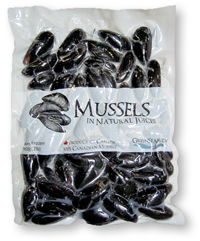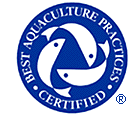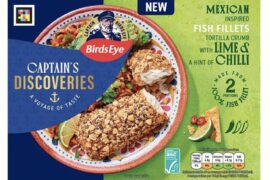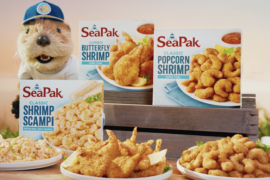Green Seafoods Ltd.’s mussel processing plant in Newfoundland, Canada, has earned Best Aquaculture Practices (BAP) certification, the Global Aquaculture Alliance announced on April 8.
Located in Winterton, on Trinity Bay in southeastern Newfoundland, the facility is a primary and secondary mussel processing plant, producing a wide range of value-added ready-to-eat blue mussel products. Its cooked frozen mussels are marketed to retail and foodservice customers worldwide under the Green Seafoods Ltd., High Liner Foods Inc., Ocean Jewel and other brands.
In addition to BAP certification, Green Seafoods has also received Canadian Organic Certification for its mussel products.
 “We are proud to have our company’s commitment to processing quality seafood recognized by receiving these BAP and organic certifications. And we are delighted to be the very first secondary mussel processing plant to receive BAP certification worldwide,” said Jennifer Green-Sheppard, Green Seafood’s vice president of marketing. “When producing retail ready-to-eat secondary products, customers need to see your ongoing commitment to food safety and environmental responsibility, which these certifications provide. The support of the Newfoundland Aquaculture Industry Association and the provincial government was greatly appreciated in achieving certification.”
“We are proud to have our company’s commitment to processing quality seafood recognized by receiving these BAP and organic certifications. And we are delighted to be the very first secondary mussel processing plant to receive BAP certification worldwide,” said Jennifer Green-Sheppard, Green Seafood’s vice president of marketing. “When producing retail ready-to-eat secondary products, customers need to see your ongoing commitment to food safety and environmental responsibility, which these certifications provide. The support of the Newfoundland Aquaculture Industry Association and the provincial government was greatly appreciated in achieving certification.”
Green Seafoods has been owned and operated by the same family for more than 100 years. Four generations of Greens have been dedicated to producing high quality seafood, beginning with Edgar J. Green in 1905.
Especially proud of the fact that it supplies customers with frozen mussels, the company lists many benefits of frozen over so-called “fresh” mussels. Here are some of the pluses consumers should know about:
- Mussels are flash frozen within hours of being harvested.
- It may take so-called “fresh” mussels several days to make it to local seafood dealers
- Once harvested, the quality of so called “fresh” mussels deteriorates within a week
- Once frozen, the quality and freshness of mussels is retained for 12 months or longer
- Freezing stops microbiological activity, including the pathogens which may cause food poisoning and spoilage
- Thanks to freezing, mussels can be eaten all year around with complete confidence and consistent meat yields
About BAP Best Aquaculture Practices is an international certification program based on achievable, science-based and continuously improved performance standards for the entire aquaculture supply chain – farms, hatcheries, processing plants and feed mills – that assure healthful foods produced through environmentally and socially responsible means. BAP certification is based on independent audits that evaluate compliance with the BAP standards developed by the Global Aquaculture Alliance.
Best Aquaculture Practices is an international certification program based on achievable, science-based and continuously improved performance standards for the entire aquaculture supply chain – farms, hatcheries, processing plants and feed mills – that assure healthful foods produced through environmentally and socially responsible means. BAP certification is based on independent audits that evaluate compliance with the BAP standards developed by the Global Aquaculture Alliance.





